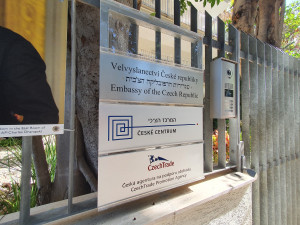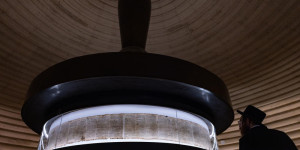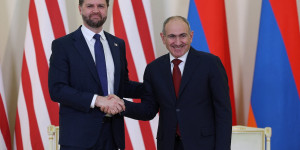Czech Republic, Hungary, and Serbia stand with Israel amid Western arms embargo

In the aftermath of Hamas’ Oct. 7, 2023, attack, Israel received a brief wave of diplomatic support from Western nations. However, only a few European countries – namely the Czech Republic, Hungary, and Serbia – moved beyond rhetoric to actively support Israel as it faced an unprecedented multi-front assault from Iran and its proxies: Hamas, Hezbollah, and the Houthis.
While the United States, Israel's closest ally, provided support in words and action, other traditional Western allies, like Italy, the United Kingdom and Germany, refused to export ammunition and other vital supplies for Israel’s defense during the ongoing war.
“Israel’s greatest allies imposed an arms embargo on Israel,” an unnamed Israeli official told the Jerusalem Post.
“Apart from the Americans, no one would supply us with equipment for offensive operations, or even sell us the parts to produce it ourselves, except Hungary, Serbia, and the Czech Republic,” he added.
Serbian President Aleksandar Vucic recalled a few months ago that he often faced criticism in Europe for his strong support for Israel.
“I am the only one in Europe today dealing in military munitions with Israel, and that is why I am often criticized by colleagues,” Vucic said.
“WE WILL always... like the Jewish people and Israel,” the Serbian president vowed. He confirmed that Serbia had “accelerated deliveries” to the Israeli military to replenish dwindling stocks amid the most intense phases of the war in Gaza.
Located in the geographical and political periphery of Europe, Serbia and its state-owned defense company, Yugoimport-SDPR, expanded its deliveries to Israel following the Oct. 7 attack.
In August 2024, Serbia's Jewish foreign minister, Marko Djuric, emphasized that the country prioritized strong diplomatic and commercial ties with the United States and Israel.
Djuric praised the Jewish nation and its battle for survival and progress.
“The pioneering spirit of a young nation, torn after centuries of hardships, has been an inspiration and a guiding light in my growing-up years. I have always admired the endurance of the Jewish nation, their devotion to preserving their identity and language, and the spirit of love and community of people brought together by the unique culture, history, and incredible suffering as a result of centuries-long persecution,” he said.
In addition to Serbia, Israeli Prime Minister Benjamin Netanyahu has cultivated ties with the Hungarian Prime Minister Viktor Orbán.
In March, Hungary became the first European country to host Netanyahu after the International Criminal Court (ICC) issued a controversial arrest warrant for him and former Israeli Defense Minister Yoav Gallant over alleged war crimes in Gaza.
Orbán praised Israel as “an anchor in the Middle East.”
Hungarian Foreign Minister Péter Szijjártó condemned the ICC for comparing the democratic State of Israel with the Hamas terrorist organization.
“It is absurd to create an equivalence between members of a democratically elected government and the leader of a terrorist organization,” he stated.
Hungary consequently rejected the ICC’s politicized ruling against Israel and withdrew its membership.
The Czech Republic has a long-standing friendship with Israel. In 1948, it supplied vital military equipment to help the newly established Jewish state defend itself against a multi-front Arab assault that openly called for its destruction. Following the Hamas massacre on Oct. 7, the Czech defense industry provided Israel with approximately 3,000 ballistic armor plates and vests.
Reports in April indicated that the Czech Republic was preparing to announce the relocation of its embassy from Tel Aviv to Jerusalem. If realized, it would become the first European Union member state to make the move.

The All Israel News Staff is a team of journalists in Israel.
You might also like to read this:
















